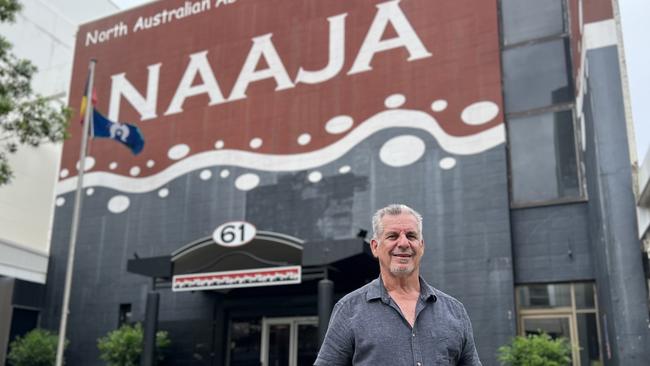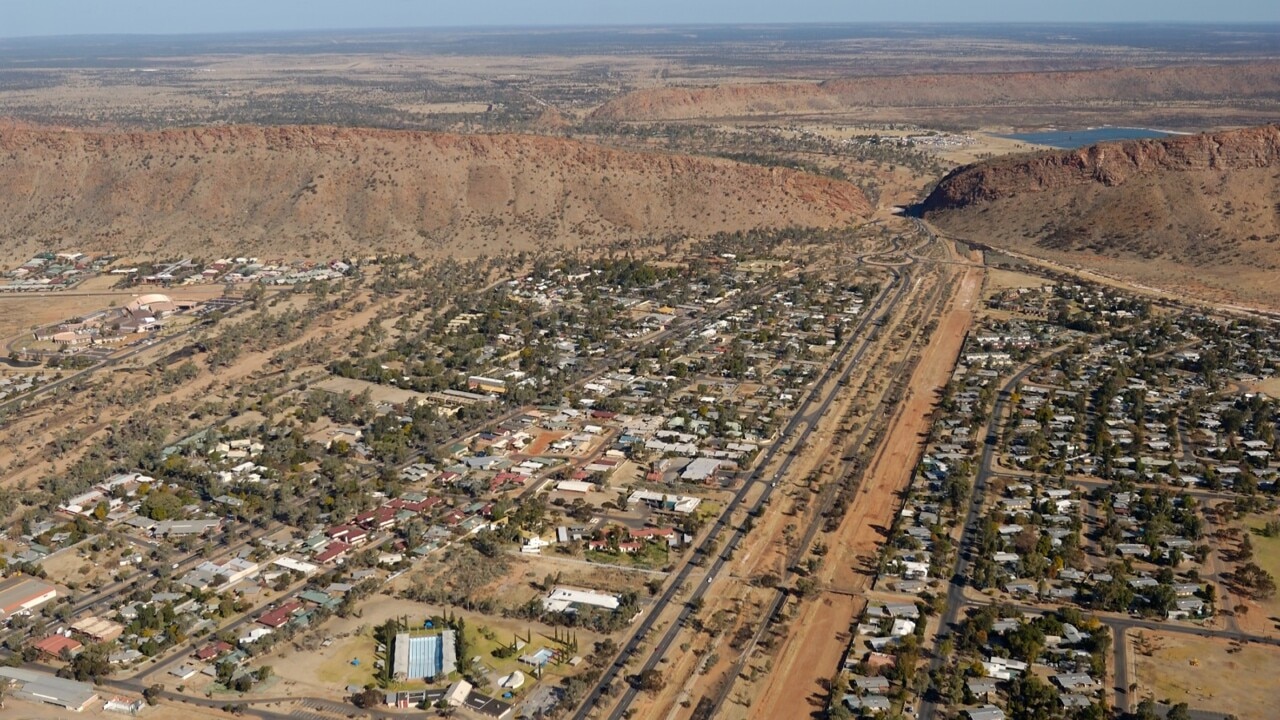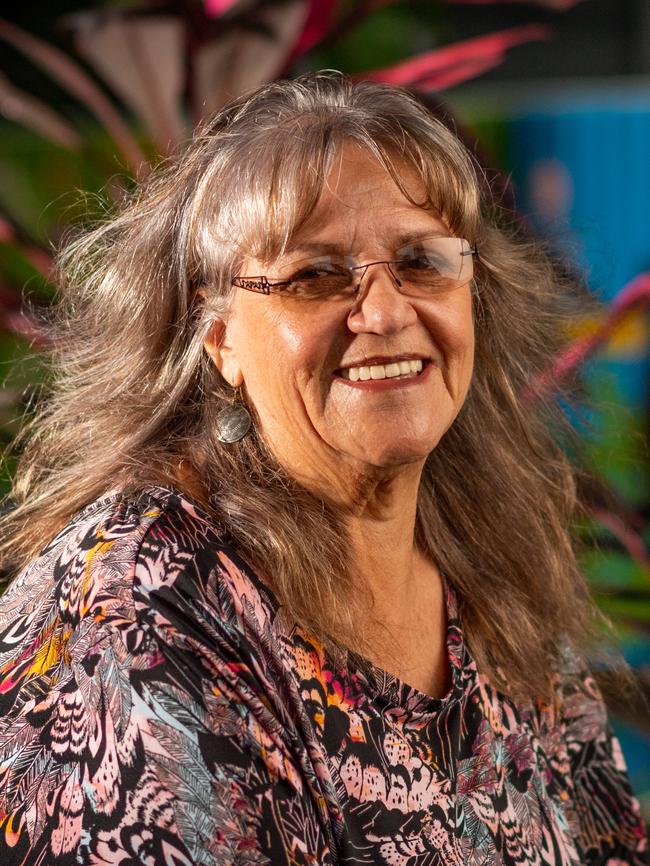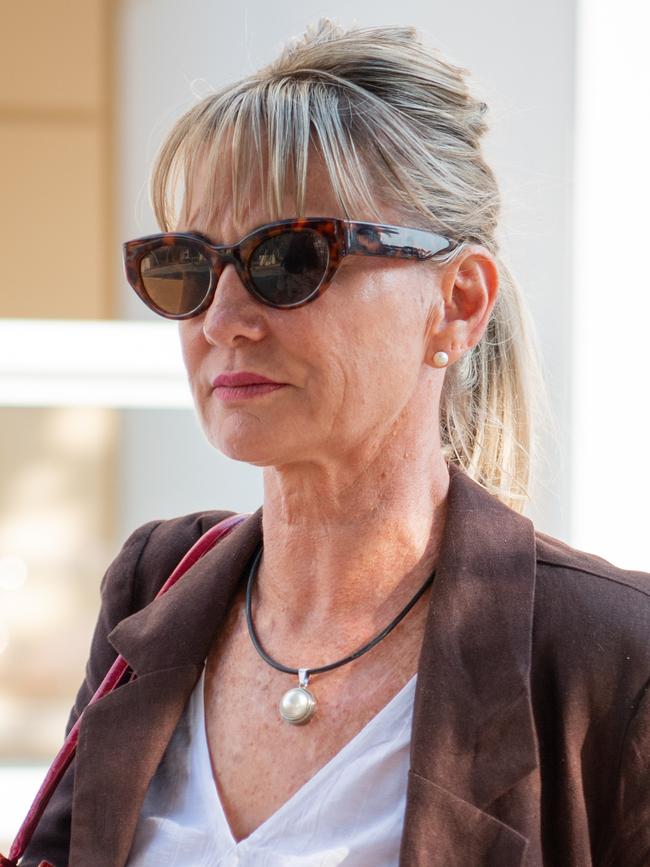NAAJA legal aid crisis puts Aboriginal accused at risk
Aboriginal people accused of crimes in one of Australia’s most remote and dangerous communities could be forced to indefinitely represent themselves in court following a mass exodus of legal staff.

Aboriginal people accused of crimes in one of Australia’s most remote and dangerous communities may be forced to indefinitely represent themselves in court following a mass exodus of staff from the country’s largest Indigenous legal service, amid renewed calls for more transparency around federal government funding for the embattled organisation.
The Australian can reveal the North Australian Aboriginal Justice Agency will not resume work for Aboriginal youth in Alice Springs until March at the earliest, with chief executive Darryl Pearce saying while he is “not 100 per cent sure” when full adult services will recommence, he hopes it will be before April.
The agency in November announced it would stop taking on new criminal matters until the end of 2023 – a target that was later extended until the end of January. But Mr Pearce says he doesn’t know exactly when they will start taking new cases again.
“It’s a nightmare, we don’t doubt that,” he told The Australian. “Simply put, if people are representing themselves, there’s a potential chance for miscarriage of justice where somebody might not be in a situation to understand the law properly.”
The revelations follow extensive reporting in The Australian about explosive claims of corruption, fraud, bullying and drug use within the NAAJA, including serious allegations that former CEO Priscilla Atkins, and current CFO Madhur Evans and current chair Colleen Rosas misused thousands of dollars in taxpayer funds.
Amid these allegations, staff have left the organisation in droves, leaving it chronically short-staffed.
Mr Pearce said staff predominantly left the organisation due to being burnt out.
“When you’re taking on 30, 40, 50 matters regularly, it just wears you down,” he said, adding that the organisation was “getting back on track” in regards to hiring.
Even when the agency returns to its full staffing capacity, Mr Pearce said, it would not be able to keep up with cases being launched across the Territory every year, including an uptick of 2000 more Indigenous people in custody over the past three years.

He said the increase in crime could be due to the NT government cracking down on offenders and “throwing them in jail”, or it could be put down to overly strict bail laws.
The Australian last year revealed a spike in domestic violence and assault following the expiry of federal “Stronger Futures” alcohol restrictions in July 2022.
“There is something really, really wrong in this area, and we just don’t know what it is at this point in time,” Mr Pearce said.
“If we’ve got such an increase in people now hitting the justice system, there’s got to be a lot more systemic problems.”
NT Legal Aid director Annmarie Lumsden said she had redirected services to youth courts, existing clients, fresh custodies and clients facing serious indictable charges.
“Accused who must appear before the court who do not face serious indictable matters are not represented by a lawyer,” she said.
“Lack of legal representation means t people do not understand the charges they face and do not receive advice about whether they should plead guilty or not guilty.
“They cannot identify a defence, or conduct a complicated defended hearing, or understand matters which the court will consider on sentence. People may be sentenced to imprisonment who otherwise might not have been if they were represented.”
The Australian in August revealed allegations of serious misconduct among high-ranking NAAJA employees, including that Ms Evans in her role as finance chief secretly funnelled $20,000 into the bank account of chair Ms Rosas, who had requested her pay be given to her on a credit card so as not to alert the Tax Office and threaten her Centrelink pension.
The allegations arose during a court case brought by former chief executive Ms Atkins, who claims she was sacked after she discovered corruption by Ms Evans and Ms Rosas.
Ms Evans and Ms Rosas deny the allegations, and say Ms Atkins used company funds to purchase multiple cars including a $129,000 Range Rover, and forged Ms Rosas’s signature on her contract extension document, securing her position as CEO – and $350,000 salary – for a further five years. Ms Atkins denies wrongdoing.
NAAJA has told The Australian the NT Police wrapped up investigations into allegations made by Ms Atkins against Ms Rosas and Ms Evans and found no wrongdoing.
The outcome of the Federal Court case will be delivered in due course.


Since the Federal Court case has come to light, opposition legal affairs spokeswoman Michaelia Cash and opposition Indigenous affairs spokeswoman Jacinta Price have written to the Albanese government urging them to intervene, considering separate allegations that employees of NAAJA are self-harming.
Senator Cash also wrote to the Australian National Audit Office to request an immediate investigation into the $83m currently being provided to the NAAJA under the National Legal Assistance Partnership. The NT government is responsible for administering the federal funds.
The ANAO rejected the request, refusing to probe spending within the organisation.
Senator Cash on Thursday told The Australian “this feels like a train wreck in slow motion”.
“The commonwealth has poured tens of millions of dollars into NAAJA over recent years to deliver legal services in Alice Springs and other parts of the Northern Territory,” she said.
“But we are in the extraordinary situation where NAAJA is no longer providing criminal law services precisely where they are needed most. The situation raises very serious concerns.”








To join the conversation, please log in. Don't have an account? Register
Join the conversation, you are commenting as Logout